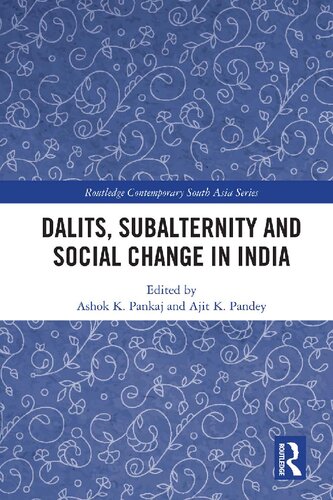

Most ebook files are in PDF format, so you can easily read them using various software such as Foxit Reader or directly on the Google Chrome browser.
Some ebook files are released by publishers in other formats such as .awz, .mobi, .epub, .fb2, etc. You may need to install specific software to read these formats on mobile/PC, such as Calibre.
Please read the tutorial at this link: https://ebookbell.com/faq
We offer FREE conversion to the popular formats you request; however, this may take some time. Therefore, right after payment, please email us, and we will try to provide the service as quickly as possible.
For some exceptional file formats or broken links (if any), please refrain from opening any disputes. Instead, email us first, and we will try to assist within a maximum of 6 hours.
EbookBell Team

4.7
16 reviewsThe linguistic origin of the term Dalit is Marathi, and pre-dates the militant-intellectual Dalit Panthers movement of the 1970s. It was not in popular use till the last quarter of the 20th century, the origin of the term Dalit, although in the 1930s, it was used as Marathi-Hindi translation of the word "Depressed Classes".
The changing nature of caste and Dalits has become a topic of increasing interest in India. This edited book is a collection of originally written chapters by eminent experts on the experiences of Dalits in India. It examines who constitute Dalits and engages with the mainstream subaltern perspective that treats Dalits as a political and economic category, a class phenomenon, and subsumes homogeneity of the entire Dalit population. This book argues that the socio-cultural deprivations of Dalits are their primary deprivations, characterized by heterogeneity of their experiences. It asserts that Dalits have a common urge to liberate from the oppressive and exploitative social arrangement which has been the guiding force of Dalit movement. This book has analysed this movement through three phases: the reformative, the transformative and the confrontationist.
An exploration of dynamic relations between subalternity, exclusion and social change, the book will be of interest to academics in the field of sociology, political science and contemporary India.